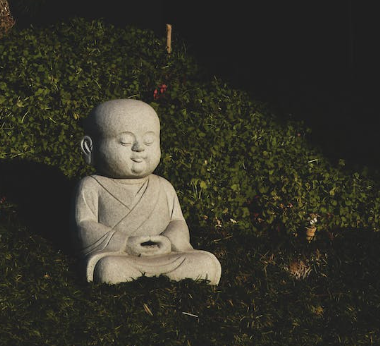written by Julstory editors
In our journey through life, one of the most important relationships we can develop is the relationship with ourselves. Building a healthy and positive connection with oneself sets the stage for personal growth, contentment, and successful relationships with others. This article delves into the significance of fostering a strong relationship with oneself and provides practical guidance on how to enhance and cultivate it.
Understanding the Significance of a Relationship with Yourself
The relationship with yourself goes beyond mere self-awareness. It encompasses how you perceive, treat, and care for yourself on a deep and personal level. It defines your self-esteem, self-worth, self-compassion, and self-identity. Cultivating a healthy and nurturing relationship with yourself is not a luxury but a necessity. It forms the bedrock upon which all other relationships in your life are built.
When you have a positive relationship with yourself, you develop a solid foundation of self-esteem and self-worth. You acknowledge your inherent value and recognize that your needs and desires are valid. This self-acceptance allows you to set healthy boundaries, communicate effectively, and make choices that align with your values.
Moreover, a healthy self-relationship promotes self-compassion. It means treating yourself with kindness, understanding, and forgiveness. By embracing self-compassion, you can navigate life’s challenges with resilience and maintain a balanced perspective during difficult times.
Developing a Relationship with Yourself
To embark on the journey of developing a meaningful connection with yourself, consider the following steps:
- Embrace Self-Discovery: Allow yourself the space and time to explore who you are. Engage in activities that bring you joy and enable self-reflection. By getting to know yourself better, you can identify your values, passions, and aspirations.
- Practice Self-Acceptance: Embrace and accept all aspects of yourself, including your strengths, weaknesses, and imperfections. Treat yourself with kindness, compassion, and understanding. Remember that self-acceptance is a lifelong process.
- Cultivate Self-Compassion: Be gentle and forgiving with yourself. Treat your inner dialogue with kindness and avoid self-criticism. Embrace self-compassion as a guiding principle, extending the same understanding and support to yourself that you would to a dear friend.
- Set Boundaries: Establish clear boundaries in your life to protect your physical, emotional, and mental well-being. Learn to say “no” when necessary and prioritize self-care. Boundaries help maintain a healthy balance in your relationships and prevent burnout.
- Engage in Self-Care: Dedicate time to engage in activities that replenish your energy and promote self-care. This may involve practicing mindfulness, engaging in hobbies, pursuing physical activities, or indulging in creative pursuits. Prioritize self-care as an essential component of your routine.
Benefits of a Healthy Relationship with Yourself
Nurturing a healthy and positive relationship with yourself brings numerous benefits:
- Enhanced Well-Being: A positive self-relationship contributes to improved mental and emotional well-being. It boosts self-confidence, reduces stress and anxiety, and enhances overall life satisfaction.
- Resilience and Inner Strength: Developing a strong relationship with yourself equips you with the resilience and inner strength needed to navigate life’s challenges. It fosters a sense of self-reliance and helps you bounce back from setbacks.
- Authenticity in Relationships: When you have a healthy relationship with yourself, you can show up authentically in your relationships with others. You have a clear understanding of your needs, values, and boundaries, which promotes genuine connections and meaningful interactions.
- Personal Growth and Empowerment: Building a positive self-relationship opens the door to personal growth and empowerment. It encourages self-reflection, self-improvement, and continuous learning. You become more attuned to your own desires, passions, and goals.
Building a Better Relationship with Yourself
Here are some practical strategies to foster a stronger relationship with yourself:
- Practice Self-Reflection: Regularly set aside time for self-reflection. Journaling, meditation, or simply taking quiet walks can help you gain insight into your thoughts, feelings, and aspirations.
- Embrace Self-Development: Engage in activities that promote personal growth and self-improvement. This could include pursuing education, learning new skills, or challenging yourself to step out of your comfort zone.
- Surround Yourself with Positivity: Surround yourself with people who uplift and support you. Cultivate relationships that encourage your personal growth and well-being, and distance yourself from toxic influences.
- Practice Self-Kindness: Treat yourself with kindness, patience, and understanding. Acknowledge your achievements, no matter how small, and practice positive self-talk.
- Celebrate Your Individuality: Embrace your unique qualities, strengths, and quirks. Celebrate what makes you different and avoid comparing yourself to others. Your individuality is what makes you special.
Conclusion
Developing a strong and healthy relationship with yourself is an ongoing journey of self-discovery, self-acceptance, and self-care. It is a fundamental step towards personal happiness and fulfilling relationships with others. By investing in nurturing your self-relationship, you unlock the potential for growth, contentment, and a life filled with self-love and fulfillment.
Remember, building a better relationship with yourself requires patience, self-compassion, and consistent effort. Be kind to yourself, embrace your individuality, and enjoy the transformational process of discovering the extraordinary person you are meant to be.








